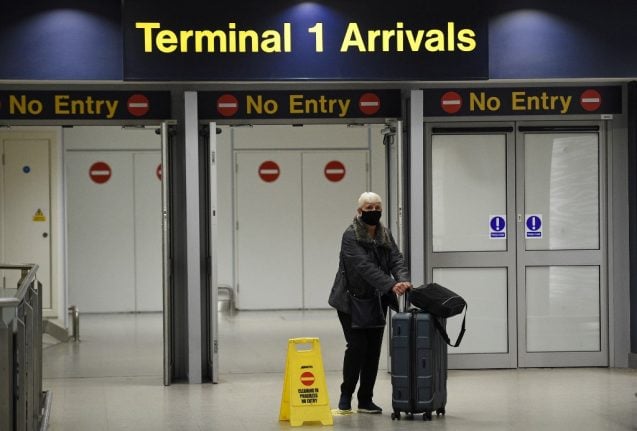Catalonia's president Artur Mas set the northeastern region at odds with Madrid when he announced plans to hold an independence "consultation" on November 9 this year — a move fiercely opposed by the Spanish government.
Now a poll published in Britain this weekend, which showed the "Yes" camp in Scotland moving slightly into the lead for the first time, has sent Catalan separatist feeling into overdrive.
"Scotland makes us envious and fuels our fury," said Josep Maria Guell, a 32-year-old architect, outside the headquarters of the Catalan National Assembly, the region's leading pro-independence group.
"The case of Scotland shows that with dialogue and political will from Madrid, we could resolve this democratically."
The timing for the YouGov poll in The Sunday Times newspaper came at the most sensitive time of the year for Catalonia: days before its annual "Diada" national day on September 11, which falls exactly a week before Scotland's referendum.
– V for vote –
The Diada marks what many in this northeastern region see as the day they lost their autonomy: September 11, 1714, when Barcelona fell to Spanish and French forces in the War of Succession that redrew the map of Spain.
This year the Diada opens the final straight in the dash to hold a vote on whether Catalonia should break away from Spain — a move the Spanish government has branded unconstitutional.
"In Scotland they have already won in that they are being allowed to vote," said Carme Forcadell, president of the ANC.
"But if the 'yes' vote wins there, that will suit us very well. We will see how the European Union reacts."
Proud of their distinct Catalan language and culture, many of Catalonia's 7.5 million inhabitants feel short-changed by the national government in Madrid, which redistributes their taxes.
Catalonia accounts for a fifth of Spain's economy but it was hit hard by the financial crisis that broke out in 2008.
Mass Diada demonstrations began at the height of Spain's financial woes in 2012, when vast crowds swamped central Barcelona. In 2013, hundreds of thousands formed a human chain around the region.
This year, supporters of independence will mass along two central Barcelona avenues in the shape of a giant letter V for "vote".
Organisers say more than 455,000 people have signed up so far for the demonstration, which will aim to fill the streets with red and yellow Catalan flags under the slogan: "The time is now."
– 'Not a nation' –
The vote "cannot and will not take place", Spanish Prime Minister Mariano Rajoy warned at his last meeting with Mas in July.
Mas vowed to pass a new regional law that he says will allow him push ahead with the "consultation" anyway, but his efforts risk being thwarted by Spain's Constitutional Court.
Unlike Scotland, whose referendum was approved by the British government, the Catalan plan faces outright resistance from national leaders.
The Catalan anti-independence movement Catalan Civil Society (SCC) insists Madrid will get its way and rejects the comparison with Scotland.
"They are two different realities. Catalonia is a region, not a nation like Scotland," said the SCC's vice-president Susana Beltran.
Outside the ANC's headquarters in Barcelona, Scotland was on the minds of those queueing to buy Catalan flags and matching shirts for Thursday's rally.
"We are two countries fighting for the same thing," said Salvador Gorro, a 54-year-old salesman. "If things go well for them, that is good for us."


 Please whitelist us to continue reading.
Please whitelist us to continue reading.
Member comments